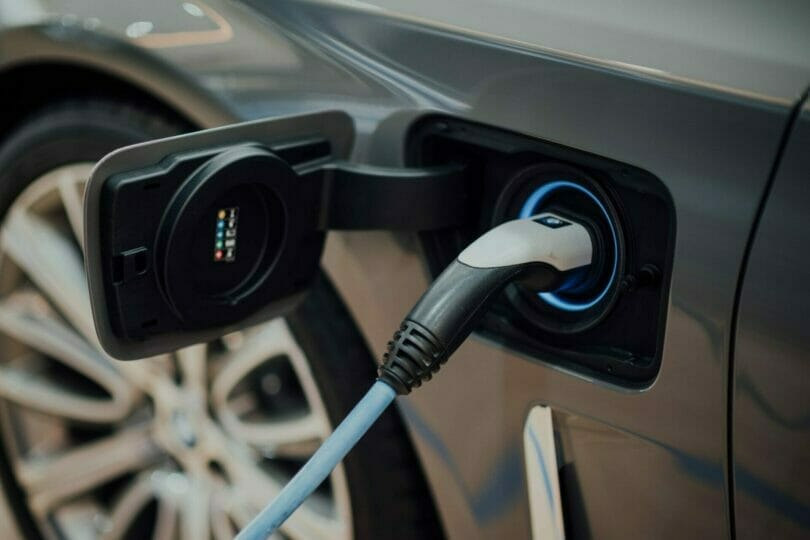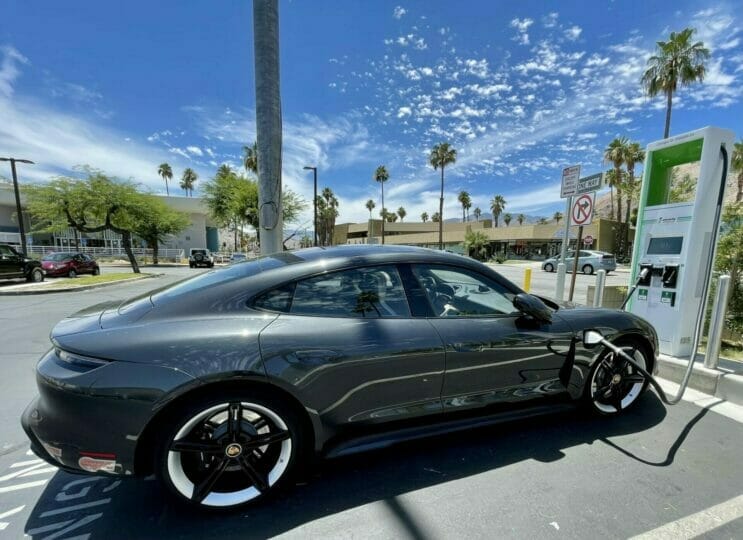Electric Cars In India – Why They’re A Better Option Than Petrol Or Diesel
If you haven’t made the switch to an EV yet, here are some reasons to consider switching. EVs are far more efficient than their petrol-run counterparts, converting as much as 59-62% of their energy into movement. They are also quieter, with no exhaust systems. Their high torque makes them quick to accelerate. Moreover, EVs have more space inside, with flat floors and good interior space.

Why are electric cars better than petrol?
The initial cost of an EV is around Rs 5 lakh higher than that of a petrol/diesel variant. Still, the operational costs are substantially lower once the battery is charged, resulting in fuel savings and lower maintenance costs. Moreover, the environmental benefits of EVs may be the most significant benefit, as the shift from private to shared mobility in India has the potential to save over one gigatonne of carbon dioxide by 2030.
An electric car can save money on fuel because its running costs are only about Rs 1.2 to 1.4 a km, while petrol prices can range between Rs nine to ten per liter. Moreover, charging an e-car at home will cost you only Rs 35000-45000 in the long run, whereas the equivalent fuel-run car would cost around Rs 4.5 lakh. With that in mind, an e-car is clearly the better option for people with large fuel bills.

Fuel efficiency is another primary reason to purchase an electric vehicle. Compared to petrol-run vehicles, EVs require far less fuel, and the batteries last longer. Plus, electric cars also have fewer moving parts, so the cost of repairs and maintenance is far lower. And they are quieter than petrol-run vehicles. Moreover, electric cars have flat floors and roomier interiors. In addition to this, they are cheaper to buy, making them the better choice for consumers in India.
Should you buy an electric car?
The future is bright for electric cars in India, but they are not yet available in every city. India’s poor charging infrastructure and a lack of charging stations in rural areas are some of the challenges. In addition, battery replacement is expensive and can add up to a significant sum. So make sure you pay attention to battery life before buying an e-car. Finally, if you’ve been debating over the idea of buying an electric car in India, here are a few pros and cons.
Electric vehicles are more expensive than standard ICEs, but the cost savings offset the initial investment over a few years. They can also be charged at home, which makes them a convenient option for urban dwellers. If you live in a metro area with enough charging stations, you should definitely invest in an electric car. Otherwise, you might want to wait for a few years to buy one before making the move.

As an EV is a battery-powered vehicle, you should check the battery life before buying one. However, many manufacturers offer warranties that cover the battery’s capacity, length of ownership, and total mileage driven. Another benefit of buying an electric car is that you can claim a tax deduction on your interest payments on the loan. This can help you avoid unnecessary expenses, and it will ensure you and your passengers are safe on the road.
Environmental Impact of Electric cars
A recent study by the Council on Energy, Environment, and Water (CEEW) found that EVs would create jobs in several sectors, including the telematics and electric vehicle industries. The government, meanwhile, would lose over Rs one lakh crore in tax revenue per year. This study highlights the need for more government support for the electric vehicle industry. While it is too early to tell whether electric cars will revolutionize the Indian transport industry, EVs are sure to help our planet and save our precious natural resources.
While the government of India is promoting a shift to electric vehicles, some questions remain unanswered. For example, a large-scale shift to electric cars may have unintended consequences for the environment and communities around power generation centers, which mainly use fossil fuels. Battery supply chain problems must also be addressed, according to energy experts. In addition, India must establish measures to promote the usage of electric cars among its citizens.

While electric vehicles are a better choice than petrol vehicles, their energy is still harmful to the environment. Electric cars only contribute to pollution if the energy they use to produce them and charge their batteries is clean. The International Council on Clean Transportation’s study, published in 2016, found that electric vehicles had fewer emissions than petrol vehicles on average. The difference was even more extraordinary in some regions. That is, in addition to reducing carbon emissions, electric cars also generate less noise and other health impacts.
What’s the most significant problem in owning an EV in India?
Charging infrastructure has been the biggest problem in India, with a reported 650 charging points in 2018. This number is far less than in China, where there are more than 456K charging stations. A lack of charging infrastructure has also contributed to range anxiety. EV owners would like to go long distances on a single charge, but current battery technology doesn’t allow that. Additionally, finding a charging station is another issue.
Many drivers have no way to charge their cars quickly enough to make it to their destination in a timely manner.
EVs are more expensive than traditional cars, and the charging time is the biggest problem. Although some electric vehicles offer fast charging, a typical car takes an hour or more to reach 80%. In addition, EVs can be costly to repair. Many service centers will try to trick you by inflating the costs and diagnosing false problems. Moreover, there is no guarantee that any repair or maintenance of an EV will be free.

Charging infrastructure is the biggest hurdle in the adoption of electric vehicles in India. Chargers are expensive, and charging stations are not always available. Besides, the cost of battery packs is a significant deterrent to buying an EV. However, as electric car technology continues to improve, the cost of battery packs will also decrease, making them more affordable for everyone. Furthermore, charging stations will become more widely available, so you won’t need to worry about running out of juice.
EVs are only slightly cleaner than petrol cars
An IHS Markit study in Europe found that an average EV would emit less CO2 per mile than a comparable gasoline car after approximately 15000 miles. However, this figure has been revised downwards and is now a bit lower at around 60,000 to 100,000 miles. Even then, an EV is still only slightly cleaner than a petrol car over a twelve-year lifespan, so the break-even point may be much lower than originally thought.
The study also showed that India could save about Rs 1 trillion per year on crude oil imports if more EVs were sold. At the same time, a 30 percent share in new vehicle sales would increase the size of EV components, which would reach around Rs 2 lakh crore. This would also result in the creation of 120,000 new jobs. In addition, EVs are expected to reduce pollution by around 80%.

The main reason EVs are not significantly cleaner than petrol cars is the fact that the electricity used to power them comes from fossil fuels. That is the opposite of the goal of an electric vehicle shift. EVs produce no greenhouse gases and are only marginally cleaner than petrol cars in India. However, this doesn’t mean that EVs are no better for the environment than petrol cars. The fact that they use fossil fuels isn’t enough to justify the hype surrounding them.
Carbon savings in the US with EVs ( case study )
According to a recent study, the average EV emits less carbon than the average new gasoline car. For example, a new gasoline car in upstate New York has emissions equivalent to 231 miles per gallon (mpg), so the average EV has emissions less than half of what a 122 mpg gasoline car produces. Moreover, as a result of the increased usage of natural gas and wind energy, power plant emissions have decreased by around 5% in the United States between 2016 and 2018.
Currently, nearly three-quarters of Americans drive alone to work, and most of these vehicles are still petrol-powered. As a result, each car emits roughly 4.6 tons of CO2 per year – the same as the total emissions of France. Unfortunately, the US lags far behind its Asian counterparts when it comes to electric car sales. EVs accounted for just 2% of new car sales in 2020, compared to 75% in Norway.

Since the last analysis, the average efficiency of EVs sold in the US has increased by six percent. However, the Tesla Model 3 is the most efficient vehicle on the market today and currently accounts for 20 percent of all EVs. Consequently, this EV makes a noticeable difference in the calculation of average EV efficiency. Although EVs are great for the environment, they will not be able to solve the problem of transportation emissions alone. The majority of the country’s electricity needs will be consumed by electric vehicles, which would strain the existing infrastructure.
Conclusion
Electric cars are becoming more and more popular for a good reason. They are cheaper to operate and maintain than petrol or diesel cars, and they produce far fewer emissions. This article provides an overview of the benefits of electric cars and why they are a better option than traditional petrol or diesel cars.








